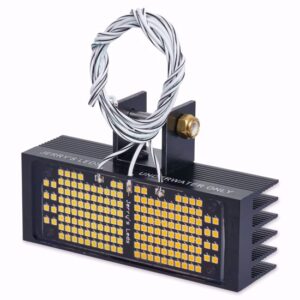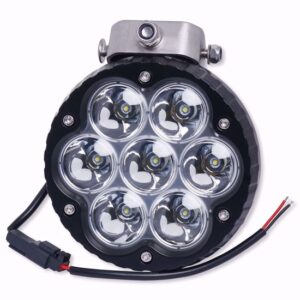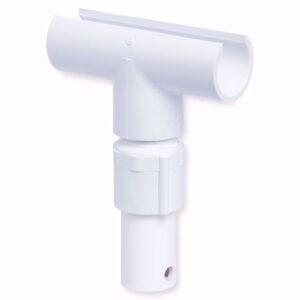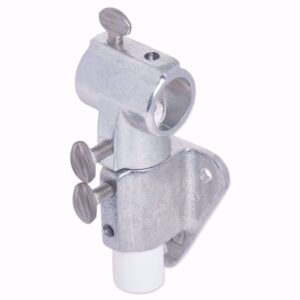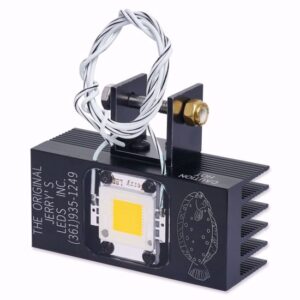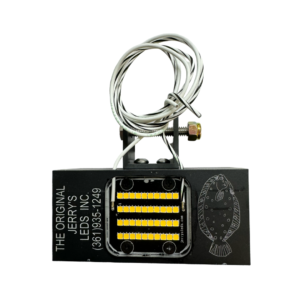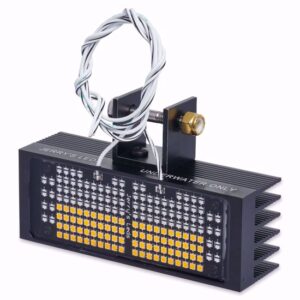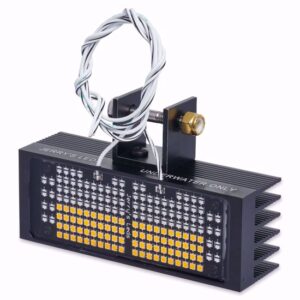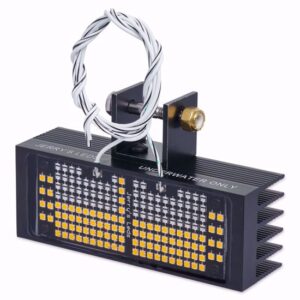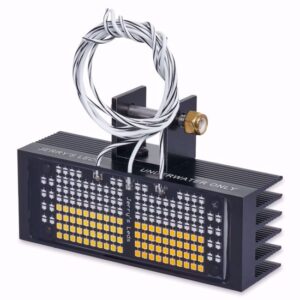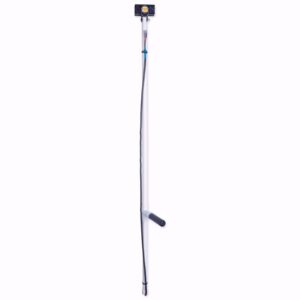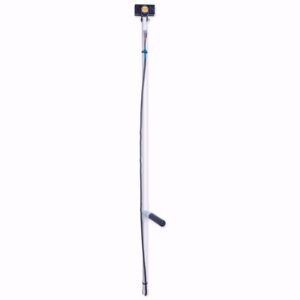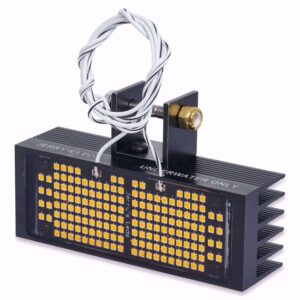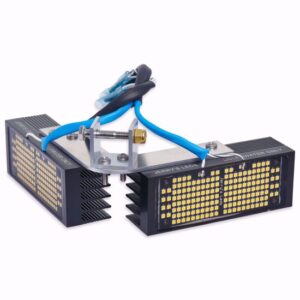LED Flounder Gigging Light Products
-
JLED84W2000K/84W3000K
$185.00 Add to cart -
JLED 70DL
$150.00 Add to cart -
JLED Snap On Mount
$10.00 Add to cart -
JLED Boat Mount
$55.00 Add to cart -
JLED 30
Price range: $80.00 through $95.00 Select options This product has multiple variants. The options may be chosen on the product page -
JLED 40
Price range: $90.00 through $105.00 Select options This product has multiple variants. The options may be chosen on the product page -
JLED 50
Price range: $100.00 through $115.00 Select options This product has multiple variants. The options may be chosen on the product page -
JLED 80
Price range: $135.00 through $150.00 Select options This product has multiple variants. The options may be chosen on the product page -
JLED 100
Price range: $150.00 through $165.00 Select options This product has multiple variants. The options may be chosen on the product page -
JLED 40W2000K/40W3000K
$150.00 Select options This product has multiple variants. The options may be chosen on the product page -
JLED 30CU
$150.00 Select options This product has multiple variants. The options may be chosen on the product page -
JLED 40CU
$160.00 Select options This product has multiple variants. The options may be chosen on the product page -
JLED 168 – LED Gigging Lights
Price range: $185.00 through $196.00 Select options This product has multiple variants. The options may be chosen on the product page -
JLED 336– Flounder Gigging Lights
$385.00 Select options This product has multiple variants. The options may be chosen on the product page
Led and Flounder Gigging Lights Equipment and Products
When it comes to flounder gigging, having the right equipment can make all the difference. At Jerry’s LEDs, we specialize in top-quality LED flounder gigging lights and accessories designed to provide the best visibility and durability on the water. Our flounder gigging lights use advanced LED technology to maximize brightness, energy efficiency, and reliability so you can stay focused on your catch.
Key Benefits of Our LED Flounder Gigging Lights
Energy Efficiency
Our LED flounder gigging lights deliver bright and clear illumination without quickly draining your battery. This allows you to spend more time on the water without worrying about power supply issues.
Superior Durability
Built to withstand tough marine environments, our lights are corrosion-resistant and highly durable. Features such as anodized components, military-spec wiring, and stainless-steel hardware ensure long-lasting performance.
Adjustable Light Tones
Water conditions can change, and so can your lighting needs. Our LED lights offer adjustable color tones that allow you to switch between warm and cool white to optimize visibility in various environments.
Low Heat Output
Our LED lights emit minimal heat and reduce the risk of attracting unwanted insects while ensuring consistent performance throughout your trip.
Versatile Lighting Solutions
At Jerry’s LEDs, our products are designed to meet the needs of flounder gigging enthusiasts while allowing them to be used for other fishing applications. Our lighting solutions are ideal for:
- Underwater Fishing
- Bowfishing
- Frog Gigging
- Bully Net Lobster Fishing
- Crappie Fishing
- Pier Illumination
Customizable Mounting Equipment Options
Every flounder gigging setup is unique, and we offer mounting solutions to fit any preference. From small rigs to large boats, our lights are designed to integrate seamlessly into your fishing system. No matter your setup, our lighting will deliver the performance you need.
What Makes Jerry’s LEDs Stand Out?
At Jerry’s LEDs, we’re committed to delivering top-quality products. Here’s why customers trust us:
Precision Craftsmanship:
Our lights are handcrafted and rigorously tested for superior performance.
Premium Materials:
We use only the best quality components, including USA-made LED chips, optical potting compounds, and hard-anodized hardware.
Customer Support:
We take pride in providing outstanding customer service and offer expert advice to help you find the perfect lighting solution.
Energy-Efficient LED Technology
Our advanced LED technology lets you enjoy the brightest lighting with minimal energy consumption. Whether you’re illuminating the seafloor for flounder gigging or enhancing visibility for underwater fishing, our lights give you dependable and long-lasting performance.
Durable and Built for Marine Environments
Marine conditions can be harsh, but Jerry’s LEDs are built to endure them. From saltwater resistance to heat dissipation, our flounder gigging lights are made to thrive in demanding conditions. Every product is built to last, so you can focus on fishing instead of worrying about your equipment failing.
Purchase Your LED Flounder Gigging Lights at Jerry's LEDs Today!
If you’re ready to enhance your flounder gigging experience, Jerry’s LEDs has the high-quality lighting solutions you need. Explore our range of products today and find the perfect lighting setup for your needs. For questions or personalized recommendations, contact us online or call (361) 935-1249.
FAQ's
What makes a flounder gigging light the best for underwater visibility?
When searching for the best underwater flounder lights, optimal visibility hinges on several key factors. First, brightness and beam spread are crucial. The best flounder gigging lights produce a powerful, wide beam that illuminates a large area, allowing you to spot flounder without constantly repositioning. This powerful illumination must be capable of cutting through murky or muddy water, a common challenge in coastal environments.
High-quality lights also offer superior water clarity adaptation, maintaining consistent performance in various conditions. Energy efficiency is another vital trait; modern LED lights provide hours of intense brightness without rapidly draining your battery. Finally, durability is non-negotiable. Top-tier lights are waterproof, impact-resistant, and built from corrosion-resistant materials to withstand the harsh saltwater environment, ensuring reliability for many seasons.
How important is color temperature (warm vs. cool white) when choosing flounder lights?
Color temperature is a critical factor when selecting the best underwater flounder lights, as it directly impacts visibility based on water conditions. The choice between warm and cool white light is not about preference but performance. Warm white lights, typically in the 2000K to 3000K range, excel at penetrating murky, stained, or muddy water. Their softer, yellowish hue reduces the reflection off suspended particles, which makes the subtle outlines of flounder more distinct against the seabed.
Conversely, cool white lights (5000K and higher) perform best in very clear water, offering stark contrast and brightness. However, this intense light can create harsh glare in less-than-perfect conditions, potentially obscuring your target. Because conditions can change, the best flounder gigging lights often feature adjustable color temperatures, allowing you to adapt on the fly and ensure optimal visibility anywhere you go.
Should I use underwater, above-water, or a combination of lights for flounder gigging?
Deciding between underwater, above-water, or a combination of lights is a key consideration for optimizing your gigging setup. For spotting flounder effectively, only the best underwater flounder lights will do. Placed beneath the surface, they completely eliminate the reflective glare that can obscure your view, providing exceptional clarity and highlighting the subtle details of the seabed where flounder are hiding.
Above-water lights serve a different but vital role, primarily for safety and navigation. They illuminate your immediate surroundings, the interior of the boat, and help you see obstacles in the water. For the most effective and safest experience, a combination of both is ideal. This balanced approach uses submerged lights to find fish and overhead lights for situational awareness, creating the overall best flounder gigging lights system. The perfect setup ultimately depends on your boat size and typical water clarity.
How many lights are recommended for flounder gigging from a boat?
The ideal number of lights for flounder gigging from a boat depends directly on its size to ensure a complete field of view. For smaller vessels like kayaks and jon boats, two to three of the best underwater flounder lights are typically sufficient to illuminate the area in front of you. As you move to medium-sized boats, generally in the 14 to 18-foot range, a setup of four to six lights is recommended to provide broad coverage along the bow and sides. For larger boats, a more extensive array of six to eight lights may be necessary to light up a wide perimeter effectively.
More important than the exact number is the placement. To create the best flounder gigging light system, ensure they are spaced evenly. This prevents creating dark blind spots between the beams where a flounder could easily go unnoticed.
What wattage is best for wading vs. boat-based flounder gigging?
The best wattage for your flounder lights depends heavily on whether you are wading or gigging from a boat. For wading, portability and power efficiency are paramount. The best underwater flounder lights for this purpose are typically 20 to 40-watt LED models. This range provides ample brightness for the immediate area a wader can scan, without requiring a heavy, cumbersome battery pack.
In contrast, boat-based setups can support more powerful systems. Lights ranging from 50 to 100 watts per fixture are common, as they can illuminate a much broader and deeper area, which is necessary when moving faster than on foot. Fortunately, the best flounder gigging lights utilize efficient LED technology, achieving powerful brightness with lower wattage compared to older options. This crucial efficiency saves your battery, allowing for longer and more successful fishing sessions.
Are LED lights better than halogen or sodium lights for flounder gigging?
Yes, LED lights are unequivocally better than halogen or high-pressure sodium lights for modern flounder gigging. The best underwater flounder lights on the market today are exclusively LEDs due to their superior efficiency, powerful brightness, and exceptional longevity. They consume far less battery power, allowing for longer nights on the water, and run significantly cooler. This makes them much safer to handle and operate compared to the intense, potentially hazardous heat generated by halogen bulbs.
While halogens can be bright, their extreme power consumption and tendency to overheat make them an inefficient and outdated choice. Similarly, high-pressure sodium lights have been completely surpassed by LED technology, which outperforms them in both water-penetrating visibility and operational lifespan. For these reasons, all of the best flounder gigging lights are now built using advanced, durable, and efficient LED technology.
How can I protect flounder gigging lights from corrosion in saltwater?
Protecting your equipment from saltwater corrosion is essential for ensuring longevity and reliable performance. The best underwater flounder lights are constructed to withstand this harsh environment, but consistent care is still critical. The single most important step is to thoroughly rinse your lights with fresh water after every single trip to remove damaging salt deposits.
Proactively, choose lights built from corrosion-resistant materials like marine-grade aluminum or stainless steel. To safeguard the electrical system, apply a thin layer of dielectric grease to all connectors and terminals, which creates a waterproof barrier against moisture. Finally, always start with a fully sealed and waterproof unit. Proper sealing is a hallmark of the best flounder gigging lights, preventing saltwater intrusion from the start. This combination of robust materials and diligent maintenance will keep your lights shining bright for many seasons.
Why should I choose adjustable color temperature lights for flounder gigging?
Choosing adjustable color temperature lights provides a significant advantage by offering unmatched versatility on the water. The best underwater flounder lights with this feature allow you to instantly adapt to changing conditions. When gigging in murky or stained water, you can switch to a warm, yellowish tone that penetrates the cloudiness more effectively, reduces glare, and makes the subtle outlines of flounder more visible. In clear water, you can shift to a crisp, cool white tone for maximum brightness and contrast.
This adaptability ensures you have the optimal lighting for any fishing environment, from muddy back bays to clear ocean flats. By investing in an adjustable system, you eliminate the need to own multiple, specialized light setups, saving you money and hassle. This all-in-one performance is why adjustable color temperature is a key feature of the best flounder gigging lights.
What are the advantages of underwater lights compared to handheld lights for gigging?
While both options can work, mounted underwater lights offer significant advantages over handheld models for flounder gigging. The primary benefit is hands-free operation, which allows you to focus entirely on handling your gig and maintaining balance, making the entire process easier and more effective. By placing the illumination source below the surface, the best underwater flounder lights completely eliminate reflective water glare, providing a much clearer and more detailed view of the seabed where flounder are hiding.
Mounted systems also provide consistent, wide-area coverage that moves with you or your boat, so you aren’t constantly repositioning a narrow beam. While handheld lights offer portability, they can become tiring to hold steady during long gigging sessions. For superior visibility and ease of use, a hands-free setup is the foundation of the best flounder gigging lights system.
Can corroded or damaged flounder gigging lights be repaired, or should they be replaced?
Deciding whether to repair or replace damaged flounder gigging lights depends entirely on the extent of the damage. Minor issues like a frayed wire, a faulty switch, or a cracked lens are often simple and inexpensive to fix. However, for more severe problems, replacement is usually the wiser choice. If the light’s housing has significant corrosion or has suffered major water intrusion that damaged the internal circuitry, a repair is often impractical and unreliable.
Furthermore, the core LED modules within the best underwater flounder lights are typically sealed and not designed to be user-serviceable. If the LEDs themselves fail, the entire unit usually needs to be replaced. While a small fix can extend a light’s life, replacement is often more cost-effective in the long run than attempting repeated repairs on a compromised unit, ensuring you have the dependable performance expected from the best flounder gigging lights.
What features make LED lights the best choice for flounder gigging?
LED technology is now the definitive choice for flounder gigging lights due to a superior combination of efficiency, durability, and performance. Modern LED gigging lights produce exceptional brightness to penetrate water while consuming minimal power, significantly extending your battery life for longer trips. Unlike fragile halogen bulbs, LEDs are solid-state and highly shock-resistant, built to withstand the demanding and often rough conditions of the marine environment.
Furthermore, they are designed with waterproof and corrosion-resistant materials essential for saltwater use. LEDs also boast an incredibly long lifespan, eliminating frequent replacements. A key advantage is their cooler operation; they generate very little heat, which makes them safer to handle and prevents damage to the light’s components, ensuring reliability season after season.
How many lumens do I need for wading versus boat-based gigging?
The ideal lumen count for your flounder gigging lights depends entirely on your method, whether you’re wading on foot or gigging from a boat. When wading, your focus is on the immediate area, making a total of 2,000 to 4,000 lumens perfectly sufficient for clear visibility. Boat-based setups, however, need more power to illuminate a wider and deeper path. For small boats like skiffs or jon boats, a combined 6,000 to 10,000 lumens is a solid target. Larger vessels will often require 10,000 lumens or more to ensure the entire perimeter is well-lit.
Crucially, remember that the distribution of light matters more than the raw lumen number. High-quality LED gigging lights with a well-designed, wide, and even beam will always outperform poorly focused lights with a higher lumen rating.
Should I use lights above water, underwater, or a combination?
The choice between above-water, underwater, or a combination of flounder gigging lights is a key decision for any setup. Underwater lights excel at spotting flounder because, by operating beneath the surface, they eliminate reflective glare and perfectly highlight bottom contours. This provides the clearest possible view of your target. In contrast, above-water lights illuminate a much broader area, which is beneficial for safe navigation and overall situational awareness in the dark.
For the best results, a combination setup is highly recommended. This approach provides the perfect balance of superior underwater visibility for hunting and essential above-water illumination for safety. Modern LED gigging lights are available in both configurations, allowing for a versatile and efficient system. Ultimately, your ideal setup may also depend on factors like your boat type and the typical water clarity where you fish.
What color temperature (e.g., warm vs. cool white) works best in clear versus murky water?
Selecting the correct color temperature for your flounder gigging lights is critical and depends entirely on water clarity. For murky, stained, or turbid water, a warm white light in the 2000K–3000K range is by far the most effective. Its longer, yellowish wavelengths penetrate suspended particles with significantly less glare and backscatter, allowing you to see the outline of a fish more clearly.
Conversely, in crystal-clear water, a cool white light (5000K+) excels by providing stark contrast and sharp detail. A neutral white (~4000K) can offer a decent balance if you face mixed conditions. However, the best solution is a set of adjustable LED gigging lights. This feature provides maximum flexibility, allowing you to tune the color temperature from warm to cool to perfectly match the conditions you encounter on any given night.
How important is adjustability in LED gigging lights for changing water conditions?
Adjustability is a crucial feature for high-performance flounder gigging lights, allowing you to effectively adapt to changing water conditions. Being able to adjust the color temperature is a significant advantage; you can switch to a warm tone to better penetrate murky water or use a cool white for crisp clarity in clear conditions. Additionally, adjustable brightness plays a key role in managing your power supply. You can lower the intensity in shallow, clear water to conserve battery and increase it when moving to deeper or less visible areas.
This versatility ensures optimal performance as you move between different environments. Ultimately, a single set of adjustable LED gigging lights provides the flexibility to handle any situation, reducing the need for multiple fixed-light setups and making your rig more efficient.
Are LED gigging lights energy-efficient and suitable for battery power?
Yes, LED gigging lights are exceptionally energy-efficient and perfectly suited for battery-powered applications. Their main advantage is an incredibly low power draw; LEDs use up to 70% less energy than traditional halogen or high-pressure sodium lights while producing a brighter, clearer light. This remarkable efficiency allows them to run for many hours on a single battery charge, maximizing your time on the water without fear of draining your power source.
This makes them the ideal choice for portable wading setups and for boats of all sizes, especially smaller vessels with limited battery capacity. Additionally, their low heat output reduces the strain on wiring and connections, contributing to a safer and more reliable electrical system. This efficiency is precisely why flounder gigging lights have almost universally transitioned to LED technology.
How can I protect my LED flounder gigging lights from saltwater corrosion?
Protecting your flounder gigging lights from saltwater corrosion is the most important step in ensuring their longevity and reliability. The easiest and most critical habit to develop is thoroughly rinsing your lights with fresh water after every trip to wash away damaging salt deposits.
Beyond maintenance, prevention starts with choosing the right equipment. The best LED gigging lights are constructed from marine-grade materials like stainless steel or properly coated aluminum that inherently resist corrosion. For electrical connections, applying a thin layer of dielectric grease creates a waterproof seal that prevents moisture intrusion. Ultimately, your first line of defense is ensuring the lights are fully sealed and have a high waterproof rating (like IP68), specifically designed for saltwater use. This combination of proper materials and consistent care is key.
How should I choose between portable wading lights and boat-mounted setups?
Choosing between portable wading and boat-mounted flounder gigging lights comes down to your primary fishing style and location. Portable wading lights are specifically designed for mobility. They are lightweight, easy to carry, and use lower-wattage LED gigging lights to maximize battery life, making them perfect for stalking flounder on foot through shallow flats and back marshes.
Boat-mounted setups, on the other hand, are higher-power systems that provide a wide, stable field of illumination. This is essential for scanning larger areas of water more quickly and effectively from a moving vessel. The best choice depends on where and how you prefer to fish. For ultimate flexibility, many avid giggers own both, allowing them to wade when the tide is right or cover more ground in the boat.
Are LEDs more compact and lightweight compared to older halogen or HPS lights?
Yes, the compact and lightweight nature of LED gigging lights is a significant advantage over older halogen and high-pressure sodium (HPS) technologies. Due to their efficient design, LEDs are housed in smaller fixtures that are much easier to mount, especially in tight spaces on a boat. Their reduced weight is a critical feature for portable flounder gigging lights, making them ideal for wading setups that need to be carried.
A key difference is that LEDs do not require the separate, heavy ballasts that are essential for HPS lights to function, drastically cutting down on total system weight and complexity. This makes LED setups far easier to transport and handle, reducing fatigue and making the entire experience of carrying and using the equipment much more manageable.
Can damaged or corroded lights be repaired, or should they be replaced?
Whether to repair or replace damaged flounder gigging lights depends entirely on the extent of the issue. Minor problems, such as a faulty switch, a frayed wire, or a cracked lens cover, are often simple and inexpensive to fix. In these cases, a repair makes perfect sense.
However, for major issues, replacement is almost always the better option. If a light’s housing has severe corrosion or has experienced significant water intrusion that damaged the electronics, it’s likely beyond reliable repair. Furthermore, the core diodes in modern LED gigging lights are typically sealed within the unit and are not user-serviceable. If the LEDs themselves fail, the entire fixture usually needs to be replaced. For any substantial damage, replacement is more cost-effective and ensures you have a dependable light.
